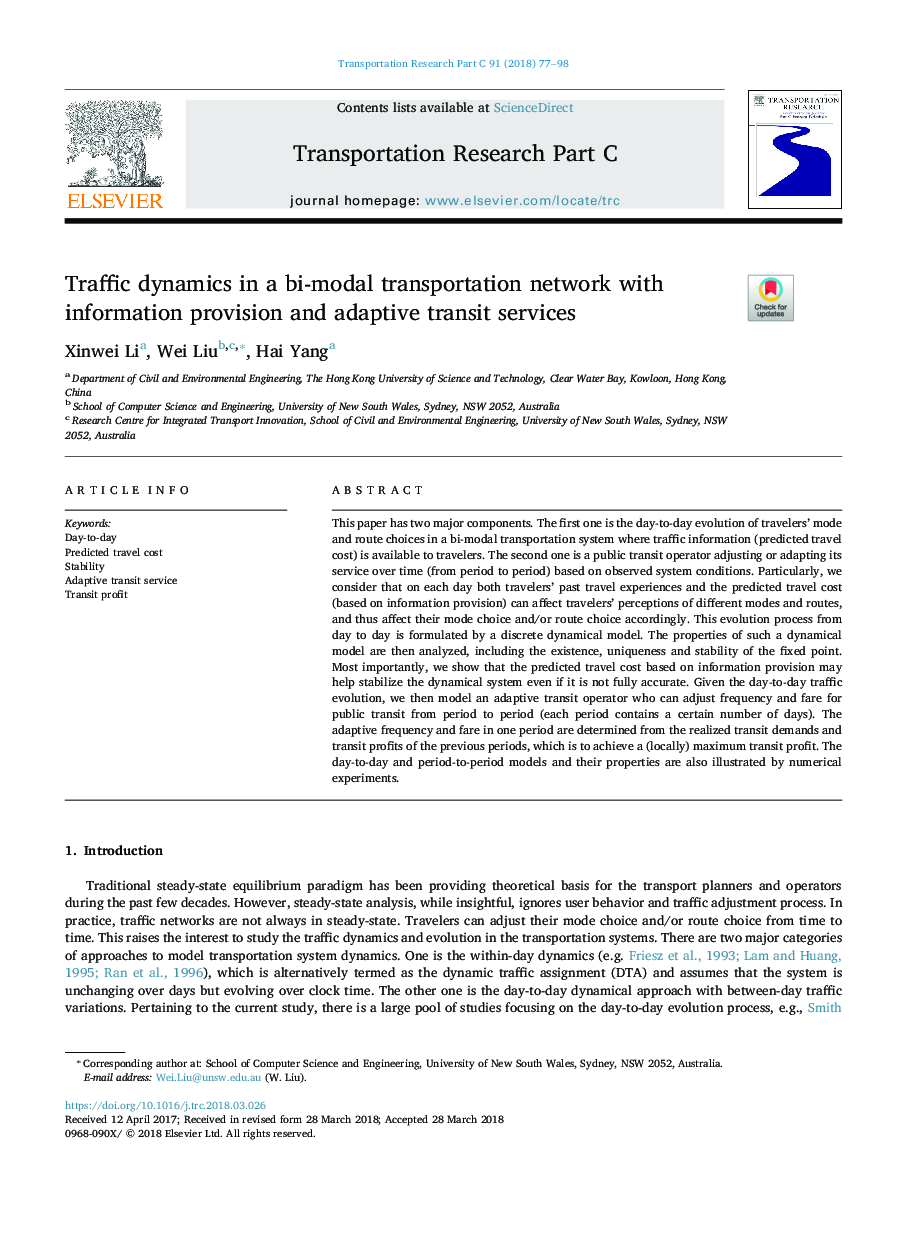| Article ID | Journal | Published Year | Pages | File Type |
|---|---|---|---|---|
| 6935908 | Transportation Research Part C: Emerging Technologies | 2018 | 22 Pages |
Abstract
This paper has two major components. The first one is the day-to-day evolution of travelers' mode and route choices in a bi-modal transportation system where traffic information (predicted travel cost) is available to travelers. The second one is a public transit operator adjusting or adapting its service over time (from period to period) based on observed system conditions. Particularly, we consider that on each day both travelers' past travel experiences and the predicted travel cost (based on information provision) can affect travelers' perceptions of different modes and routes, and thus affect their mode choice and/or route choice accordingly. This evolution process from day to day is formulated by a discrete dynamical model. The properties of such a dynamical model are then analyzed, including the existence, uniqueness and stability of the fixed point. Most importantly, we show that the predicted travel cost based on information provision may help stabilize the dynamical system even if it is not fully accurate. Given the day-to-day traffic evolution, we then model an adaptive transit operator who can adjust frequency and fare for public transit from period to period (each period contains a certain number of days). The adaptive frequency and fare in one period are determined from the realized transit demands and transit profits of the previous periods, which is to achieve a (locally) maximum transit profit. The day-to-day and period-to-period models and their properties are also illustrated by numerical experiments.
Keywords
Related Topics
Physical Sciences and Engineering
Computer Science
Computer Science Applications
Authors
Xinwei Li, Wei Liu, Hai Yang,
